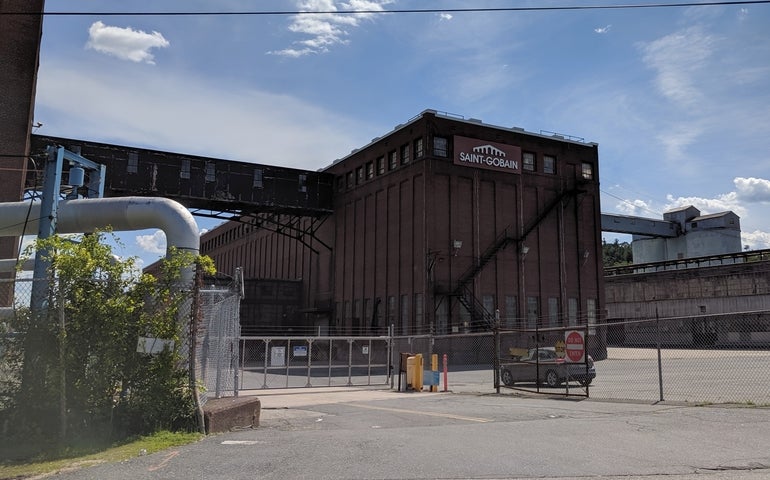For years coming out of the Great Recession, manufacturing in Greater Worcester outpaced the nation in new job growth.
That’s no longer the case.
Since late 2017, the Worcester metropolitan area’s manufacturing employment has lagged the nation, growing at just 1.2%. The national figure is 2.1%.
That data, compiled by the Brookings Institution at the request of the Worcester Business Journal, also shows advanced manufacturing — higher-technology operations that make up a greater share of Greater Worcester’s manufacturing industry — falling behind. Advanced manufacturing in Greater Worcester grew by just 0.3% from 2010 to 2018, compared to 1.3% nationally, according to Brookings.
Two out of five manufacturing jobs in the Worcester area were in advanced manufacturing, according to Brookings, making up a segment of the industry that would account for, say, AbbVie in Worcester, Bristol Myers-Squibb in Devens, Charles River Laboratories in Shrewsbury or IPG Photonics in Oxford.
Those higher-tech manufacturing jobs are enviable for a region and less likely to be moved for cost savings because such companies want to tap into an area’s educated workforce, said Mark Muro, a senior fellow and policy director at Brookings. But they’re also more susceptible to trade disruptions or economic concerns overseas. Tariffs on goods going to or coming from China, for example, have been said by economists to be crimping economic growth.
“These are likely weighing on Massachusetts manufacturing,” Muro said.
Thanks to those factors, the manufacturing industry could likely expect a broad slowdown since the end of 2018, when Brookings’ data ends, Muro said.
Manufacturing has also been down statewide, according to estimates from the Executive Office of Labor and Workforce Development. In the 12 months ending in May, manufacturing employment was down an estimated 1,800 jobs, or 0.7%. Total nonfarm employment rose by 26,700 jobs over that stretch, or also 0.7%.
Nationally, manufacturing jobs are up 1.3% in the last 12 months through June, according to the Bureau of Labor Statistics.
Determining the manufacturing employment levels at specific manufacturers is difficult, but the Worcester Business Journal publishes an annual list of the region’s largest manufacturers by number of employees, which is based on employer surveys, annual reports, company websites and the Massachusetts Manufacturers Register.
Some of the region’s largest manufacturers have reported drops in employment, including Worcester’s Saint-Gobain, which has dropped from 1,800 workers in 2011 to 1,500 this year, and Framingham’s Bose, which has seen a dramatic drop from more than 2,500 workers in 2015 to around 1,000 today. Primetals, which is moving from Worcester to a new facility in Sutton, has lowered its local headcount from 580 in 2011 to 328 today.
Lesser drops were also reported at Dell Technologies’ EMC Corp. operations, Raytheon’s Marlborough operations, Nypro in Clinton, and Wyman-Gordon in Grafton. One bright spot was IPG Photonics of Oxford, whose employment has jumped from less than 1,000 in 2015 to 1,750 today.
Several manufacturers told the Worcester Business Journal last summer that they anticipated having to swallow higher costs to import raw material such as medals instead of passing those costs onto consumers.
That isn’t a unique-to-manufacturing challenge: in May, a Bank of America Merrill Lynch analysis said that Framingham-based retailer TJX could see a 15% drop in earnings due to tariffs if it didn’t raise prices to make up for the higher costs. Maynard networking technology company Acacia Communications has also faced uncertainty from American sanctions on Chinese telecommunications firms Huawei and ZTE.

